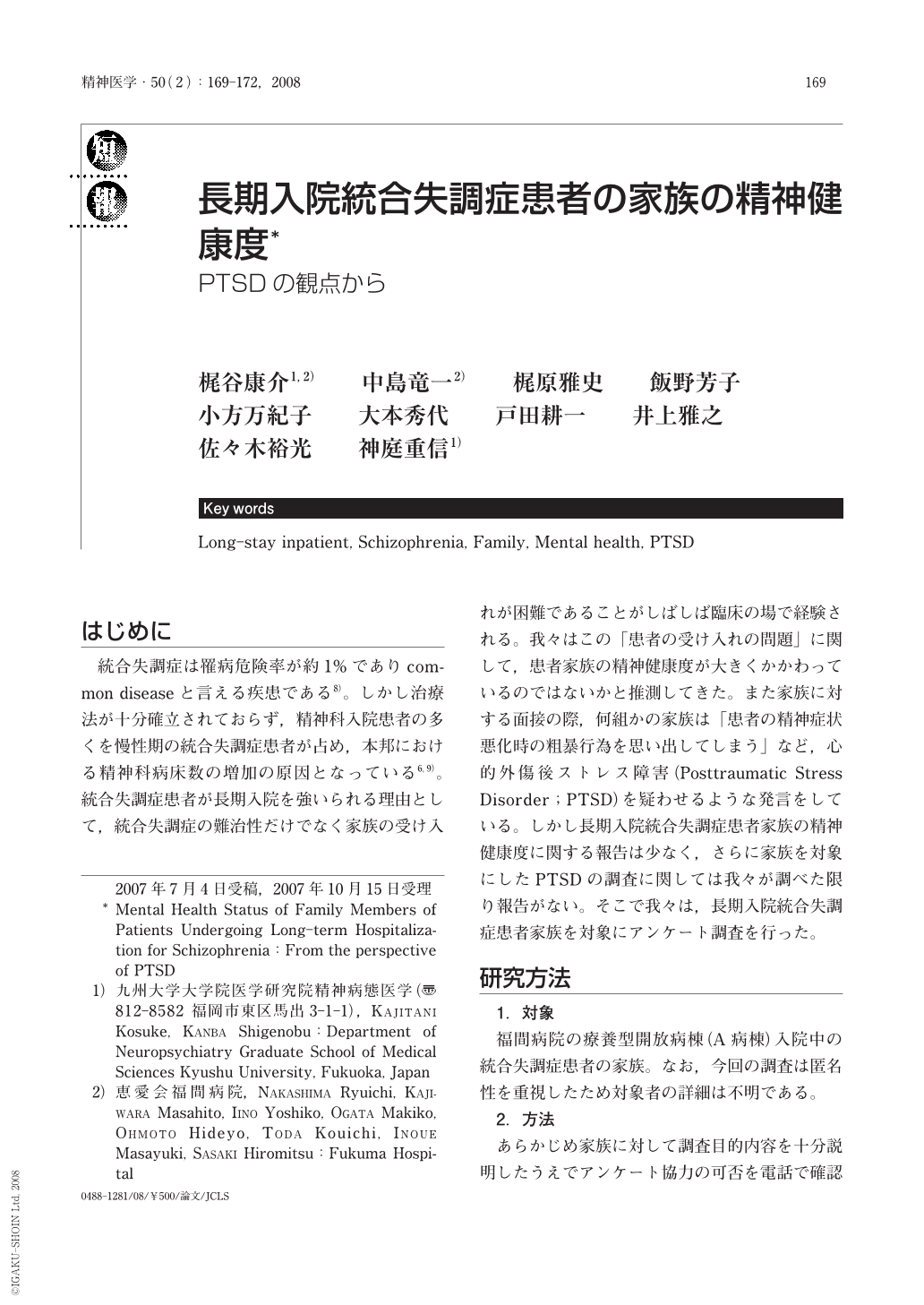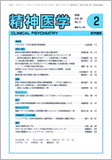Japanese
English
- 有料閲覧
- Abstract 文献概要
- 1ページ目 Look Inside
- 参考文献 Reference
はじめに
統合失調症は罹病危険率が約1%でありcommon diseaseと言える疾患である8)。しかし治療法が十分確立されておらず,精神科入院患者の多くを慢性期の統合失調症患者が占め,本邦における精神科病床数の増加の原因となっている6,9)。統合失調症患者が長期入院を強いられる理由として,統合失調症の難治性だけでなく家族の受け入れが困難であることがしばしば臨床の場で経験される。我々はこの「患者の受け入れの問題」に関して,患者家族の精神健康度が大きくかかわっているのではないかと推測してきた。また家族に対する面接の際,何組かの家族は「患者の精神症状悪化時の粗暴行為を思い出してしまう」など,心的外傷後ストレス障害(Posttraumatic Stress Disorder;PTSD)を疑わせるような発言をしている。しかし長期入院統合失調症患者家族の精神健康度に関する報告は少なく,さらに家族を対象にしたPTSDの調査に関しては我々が調べた限り報告がない。そこで我々は,長期入院統合失調症患者家族を対象にアンケート調査を行った。
Long-term hospitalization of chronic schizophrenia patients has become a concern in psychiatric care in Japan. Believing that the mental health status of family members is a substantial factor for this long-term hospitalization and surmising that family members of patients may be, based on their statements, suffering from PTSD, we administered the GHQ-12, SDS, and IES-R to patients' family members. The result was that the proportion of patients' family members whose scores exceeded the cut-off level for each test was 63.2% for the GHQ-12, 84.0% for the SDS, and 57.9% for the IES-R. Many patients' family members faced problems in terms of mental health and were suspected of suffering from PTSD. Therefore, this suggests that improvement in the mental health of family members of patients undergoing long-term hospitalization for schizophrenia may be linked to the prevention of long-term hospitalization.

Copyright © 2008, Igaku-Shoin Ltd. All rights reserved.


